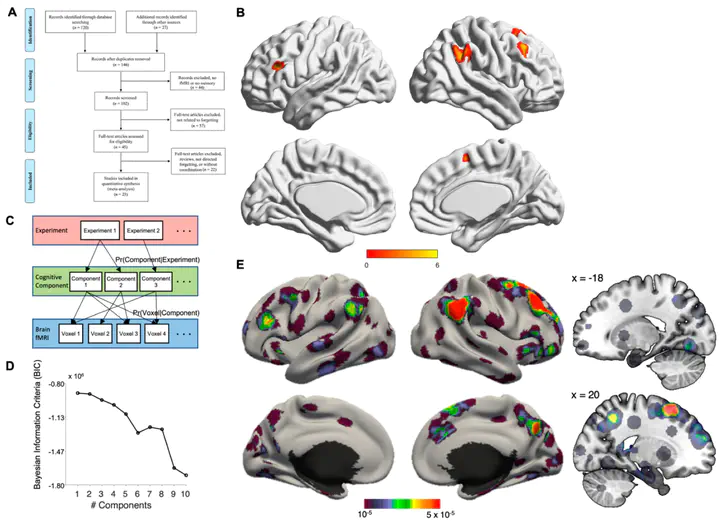Obliviate! Reviewing Neural Fundamentals of Intentional Forgetting from a Meta-Analytic Perspective
 Image credit: Fig1
Image credit: Fig1
摘要
Intentional forgetting (IF) is an important adaptive mechanism necessary for correct memory functioning, optimal psychological wellbeing, and appropriate daily performance. Due to its complexity, the neuropsychological processes that give birth to successful intentional forgetting are not yet clearly known. In this study, we used two different meta-analytic algorithms, Activation Likelihood Estimation (ALE) & Latent Dirichlet Allocation (LDA) to quantitatively assess the neural correlates of IF and to evaluate the degree of compatibility between the proposed neurobiological models and the existing brain imaging data. We found that IF involves the interaction of two networks, the main “core regions” consisting of a primarily right-lateralized frontal-parietal circuit that is activated irrespective of the paradigm used and sample characteristics and a second less constrained “supportive network” that involves frontal-hippocampal interactions when IF takes place. Additionally, our results support the validity of the inhibitory or thought suppression hypothesis. The presence of a neural signature of IF that is stable regardless of experimental paradigms is a promising finding that may open new venues for the development of effective clinical interventions.